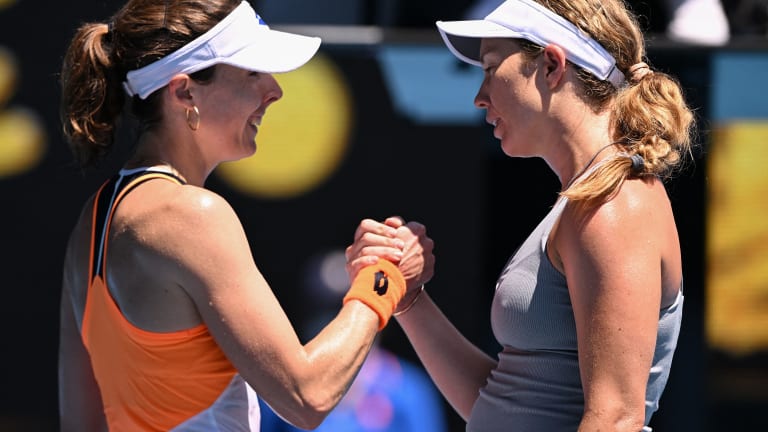Australian Open
Danielle Collins returns to Australian Open semifinals after ending Alizé Cornet's best major run
By Jan 26, 2022Australian Open
Alexander Zverev and Nick Kyrgios could meet in the Australian Open's third round. Who would win?
By Jan 10, 2025Australian Open
Gauff, Fritz, Paul, Pegula? Which American will advance furthest at the Australian Open?
By Jan 10, 2025Australian Open
2025 Australian Open Expert Picks: Who will win, surprise and stumble in Melbourne?
By Jan 10, 2025Australian Open
Can Aryna Sabalenka make it three straight in Melbourne? | Australian Open women's preview
By Jan 09, 2025Australian Open
Are Jannik Sinner and Carlos Alcaraz ready to rule the way the Big 3 did? | Australian Open men's preview
By Jan 09, 2025Australian Open
Doping clouds tennis talk at the Australian Open with Jannik Sinner, Iga Swiatek facing scrutiny
By Jan 09, 2025Australian Open
Hady Habib is first Lebanese player in Open Era to play in major men's singles draw
By Jan 09, 2025Australian Open
2025 Australian Open men’s draw projects Carlos Alcaraz, Novak Djokovic quarterfinal; Jannik Sinner looms in final
By Jan 09, 2025Australian Open
2025 Australian Open women’s draw sets Coco Gauff, Aryna Sabalenka on semifinal collision course
By Jan 09, 2025Australian Open
Danielle Collins returns to Australian Open semifinals after ending Alizé Cornet's best major run
While Collins won this tennis match, 7-5, 6-1, why believe that history is only written by the winners? Just ask Cornet.
Published Jan 26, 2022
Advertising
Advertising

Collins excelled on her first serve, going 28 for 31 in the 88-minute victory.
© AFP via Getty Images